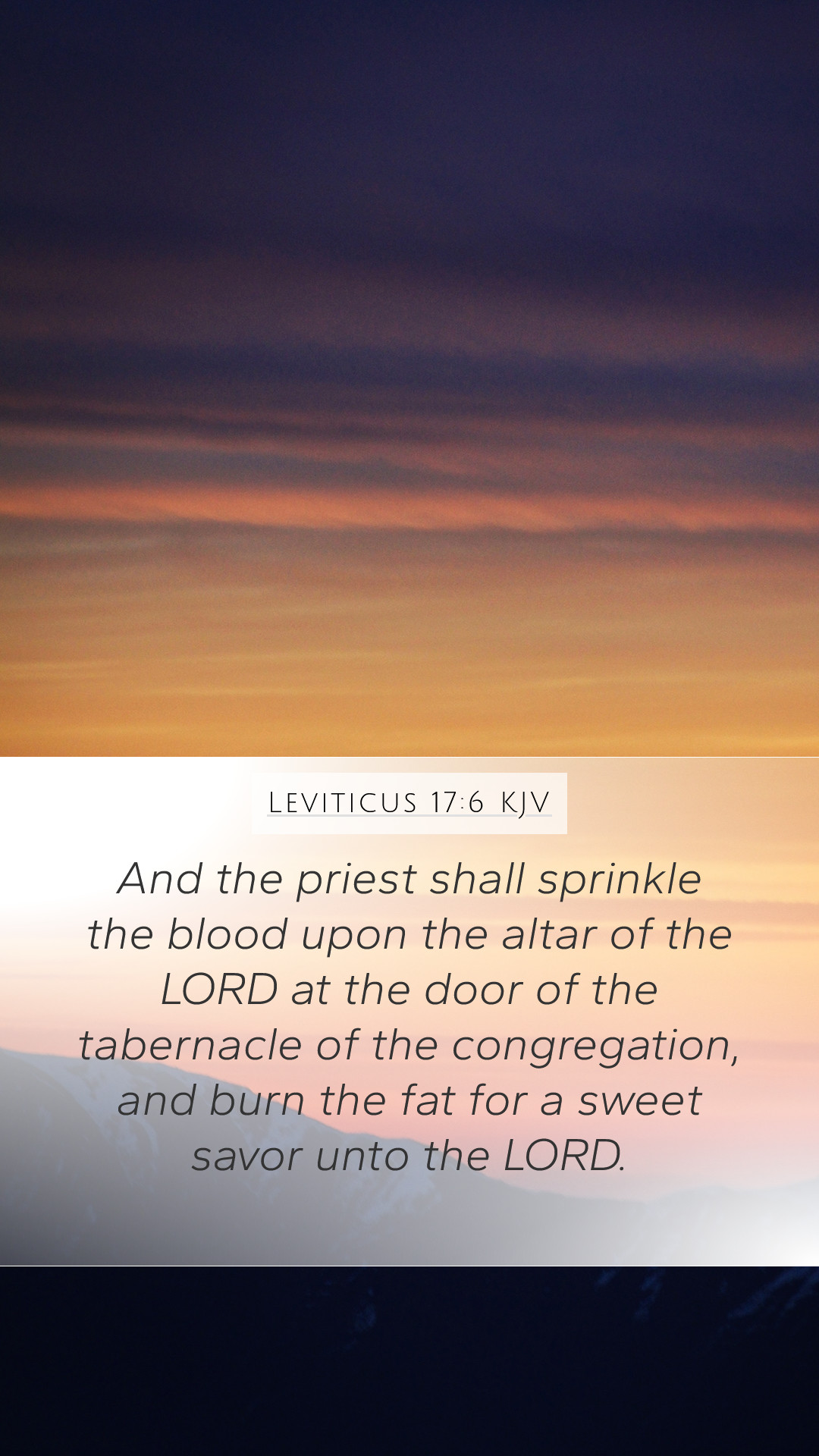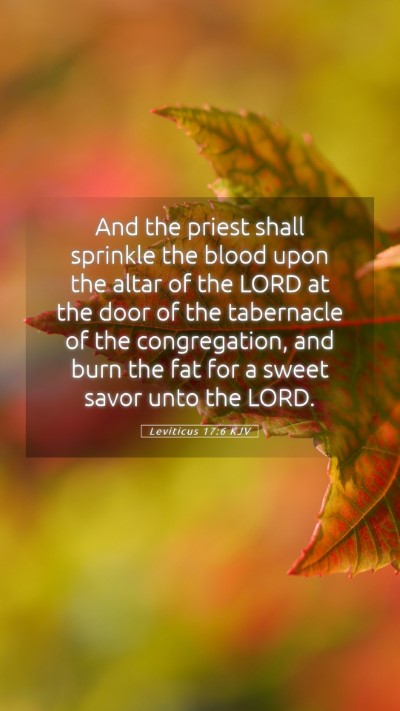Bible Verse Explanation: Leviticus 17:6
Leviticus 17:6 states: "And the priest shall sprinkle the blood upon the altar of the Lord at the door of the tabernacle of the congregation, and burn the fat for a sweet savour unto the Lord." This verse is part of the Levitical laws that underscore the sanctity of blood and the importance of proper sacrificial practices.
Overview of Leviticus 17:6
This verse details the role of the priest in the sacrificial system, highlighting key aspects of how sacrifices were to be conducted to ensure they were pleasing to God. Here, the emphasis lies on the ritual of shedding blood, which serves as a symbolic act representing atonement and purity.
Interpretation and Meaning
Commentators such as Matthew Henry, Albert Barnes, and Adam Clarke provide valuable insights into this verse:
-
Matthew Henry highlights that the act of sprinkling blood signifies the appeasement of God's anger and the restoration of sinners' fellowship with Him. He asserts that blood represents life, and its proper handling in sacrifices indicates respect for God's laws.
-
Albert Barnes notes the significance of the priest's role, wherein the priest acts as a mediator between God and the people. The sprinkling of the blood signifies that the sacrifice is accepted by the Lord, thus fostering a sense of communal worship and unity among the Israelites.
-
Adam Clarke offers an analysis of the symbolism inherent in the act of sacrifice. He points out that the fat is burnt as a soothing offering to God, representing the best portions being given to Him. This reflects a principle of offering one’s best to the divine and practicing gratitude and devotion.
Significance of the Blood in Sacrifices
The act of sprinkling blood is foundational to understanding the Bible verse meanings in Leviticus. Blood is seen as a means through which atonement is made, and this requirement of sacrificial offerings highlights the seriousness with which sin is viewed in the covenant relationship between God and His people.
Understanding the Role of the Priest
The priest's action in Leviticus 17:6 not only establishes ritual purity but also serves as an early typology of Christ's ultimate sacrifice as the High Priest. This theme is crucial to the Bible verse interpretations which connect Old Testament practices with New Testament theology.
Related Scripture References
- Hebrews 9:22 - "And almost all things are by the law purged with blood; and without shedding of blood is no remission."
- Exodus 12:13 - "And the blood shall be to you for a token upon the houses where ye are: and when I see the blood, I will pass over you."
- Romans 3:25 - "Whom God hath set forth to be a propitiation through faith in his blood, to declare his righteousness for the remission of sins that are past, through the forbearance of God."
Application of Leviticus 17:6 in Daily Life
Applying Bible verses to daily life involves reflecting on the significance of atonement and the need for purity before God. The sacrificial system illustrates the seriousness of sin and the necessity of confession and repentance. Today's believers are encouraged to understand that Christ has fulfilled these Old Testament sacrificial laws through His death on the cross, bringing a new covenant based on grace.
In Summary
Leviticus 17:6 serves as a poignant reminder of God's holiness and the importance of proper worship practices. The insights from public domain commentaries help deepen our Bible verse understanding and enrich our Bible study insights. Understanding Scripture in this context prepares believers to appreciate the transitions from the Law to grace and their implications for a faithful life.


